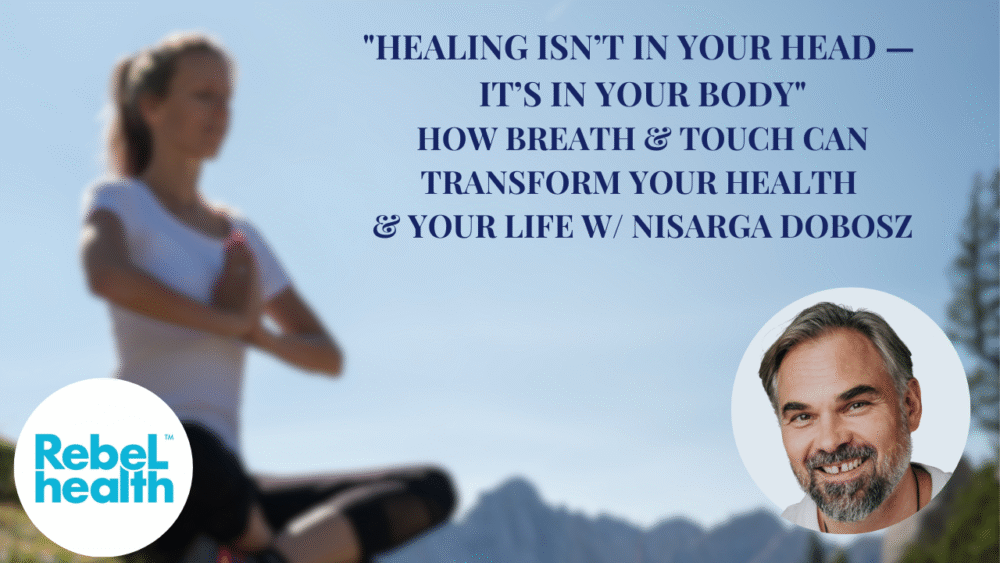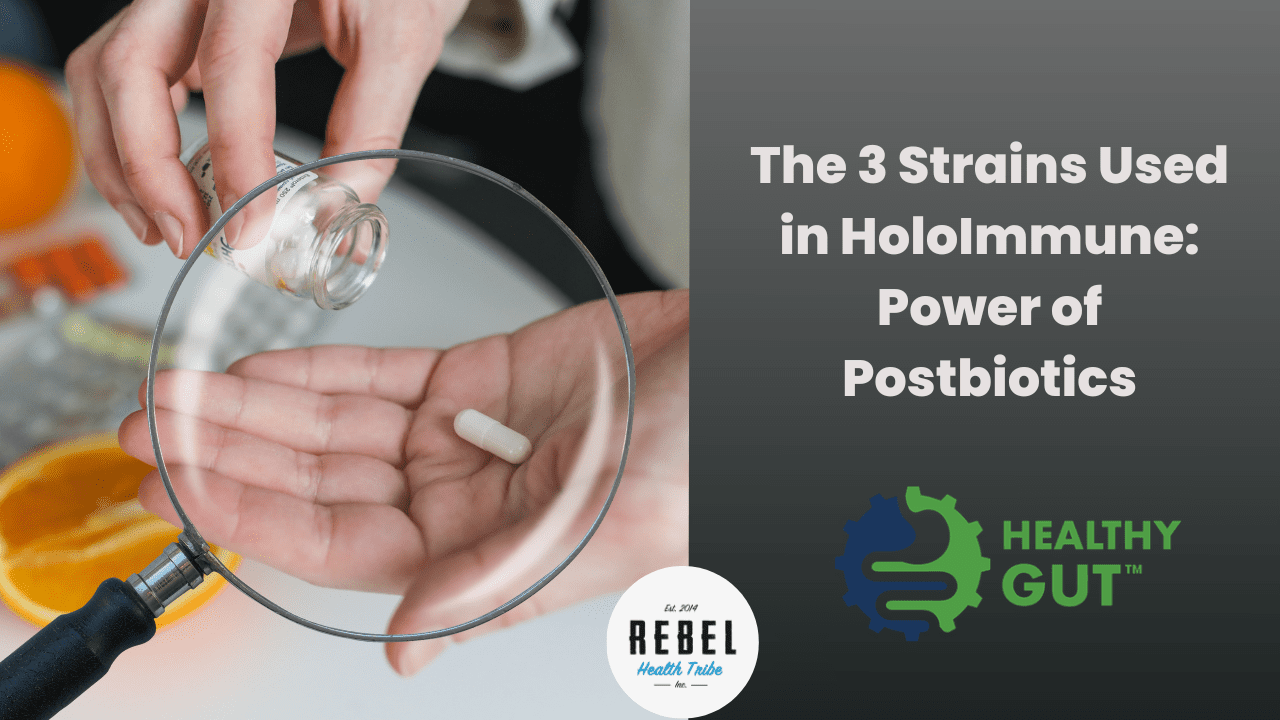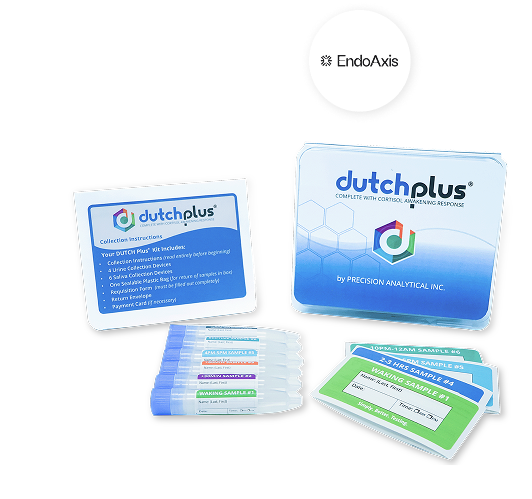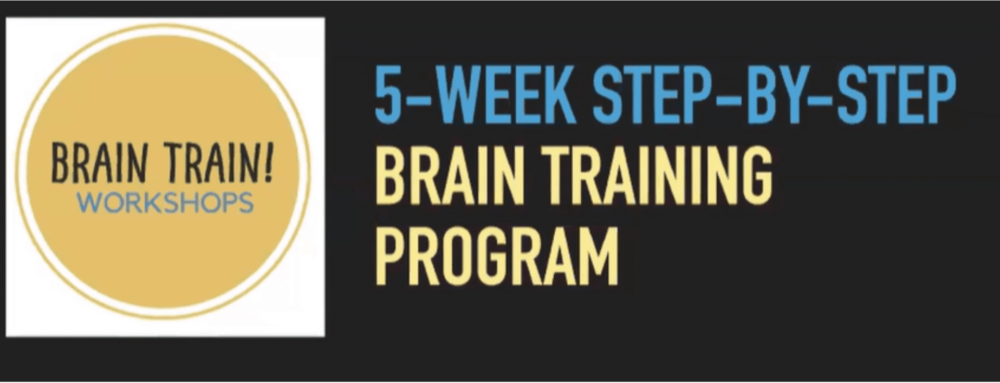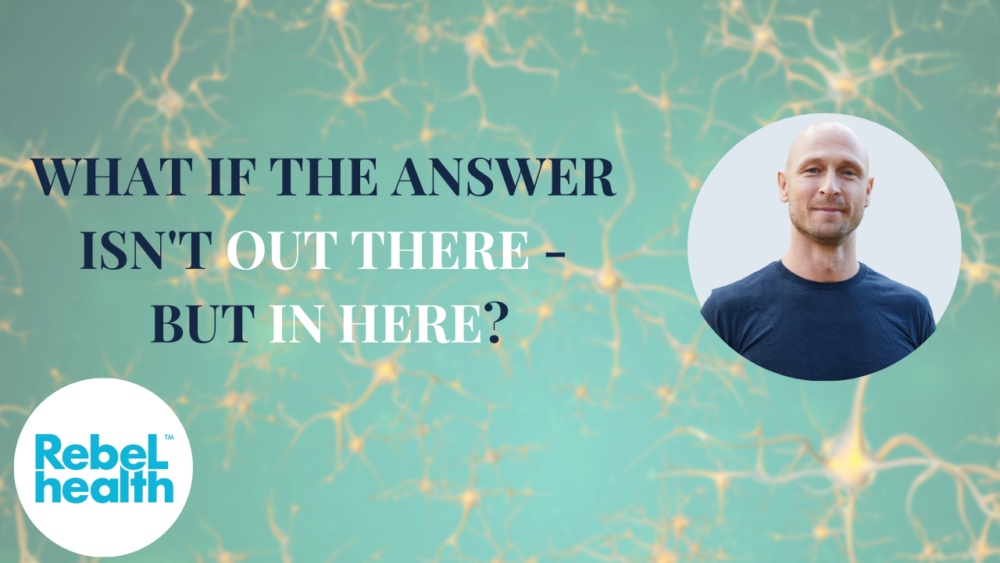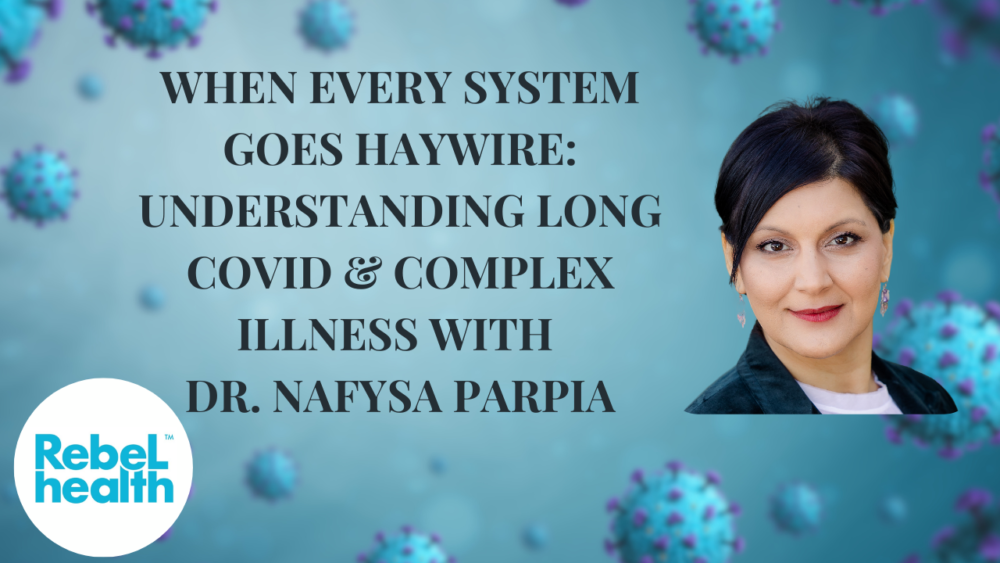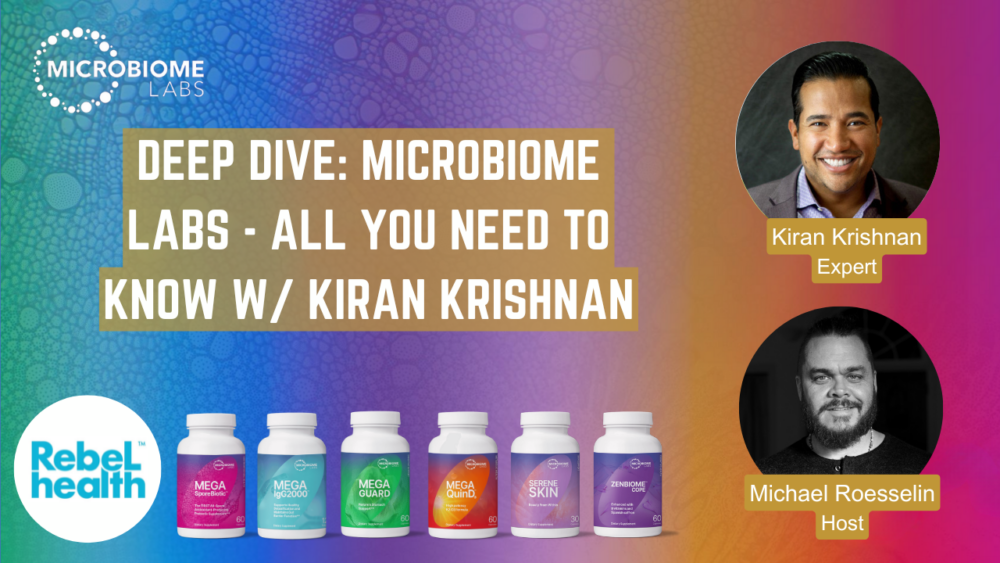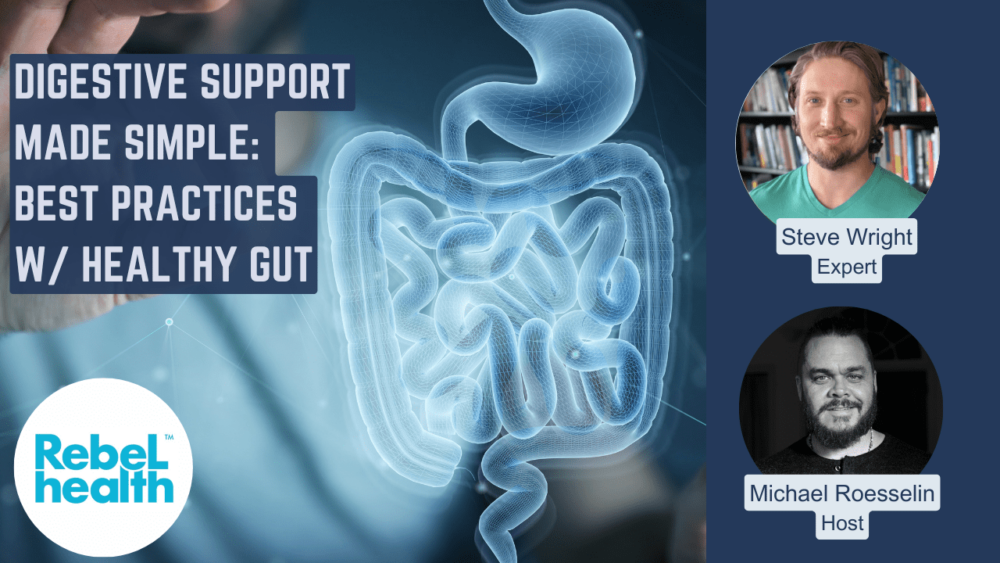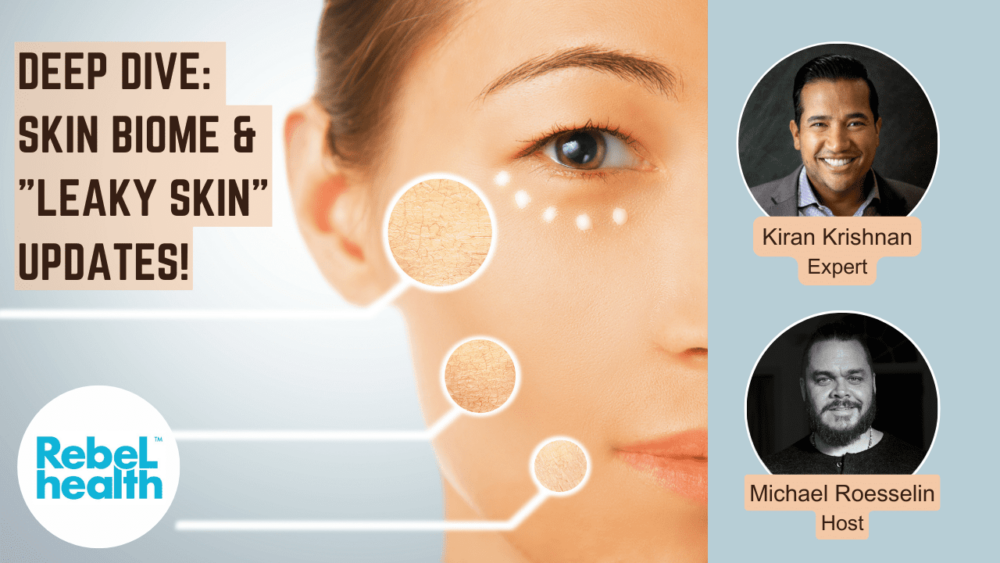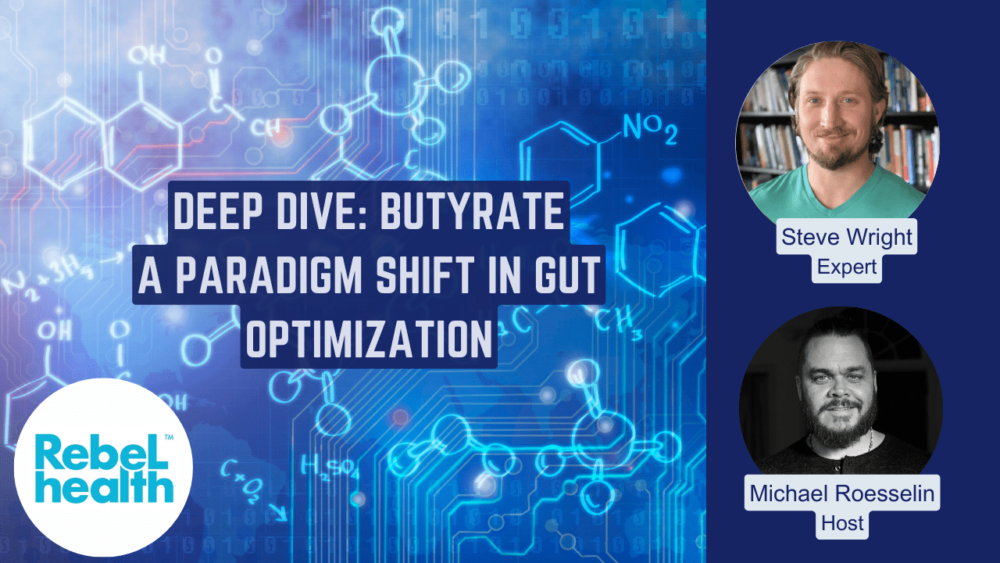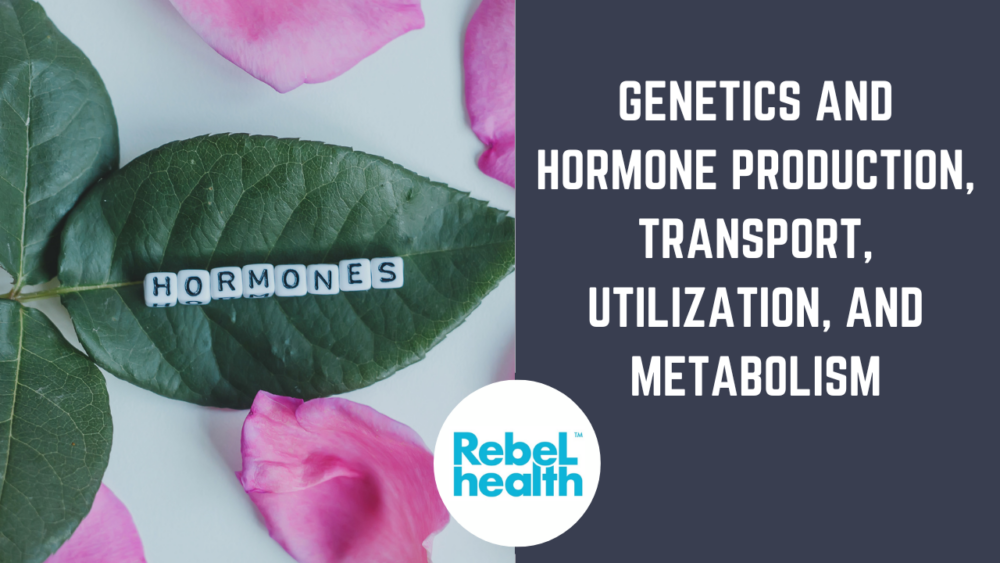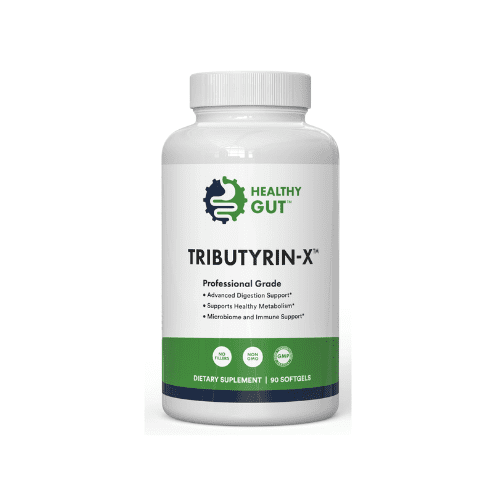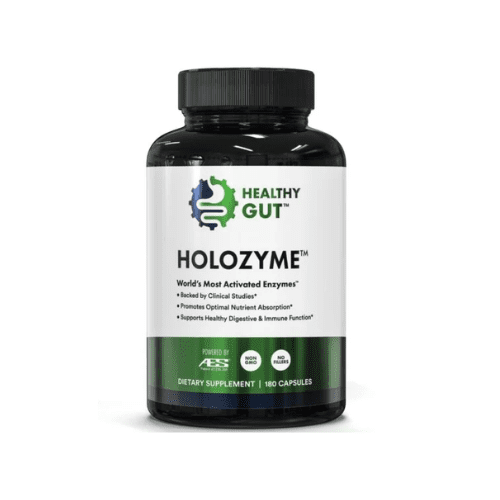Hey, Dr. Titus, welcome to the show.
Hey, hey, Michael.
It’s great to be back.
Good to see you.
Yeah, man.
These are always fun
I’m excited and
it’s a topic always with you that I’m super interested in as a
Very skilled concussion acquirer throughout my life
I’ll call it and so I always learn something really useful and helpful for me and
My endeavors with repairing my brain and we’ve done the awesome brain train together a few years back and
so I always learn a ton of stuff and so for those who
We’re gonna be talking about your brain and what happens when it gets injured and you’re gonna learn some things that you Probably don’t know or have never heard about this before.
So
before we get into
that
relative to the to the audience
I’d like you to share just a little bit about how
you got so into the brain and specifically into working with concussions because
Oftentimes when I’m interviewing people a lot of them have a really interesting
way that they got into their niche topic that they’re experts in and it wasn’t because one day you just woke up and were like
You know what?
I really want to learn about concussions and working with concussions in the brain.
I’m guessing that’s not what happened
So if you could share a little bit about your journey, and then we’ll get into some real valuable info
Yeah, I mean that’s actually a great way of putting it
I didn’t literally just wake up, but I think I woke up from the haze of a concussion and that’s why I decided to
dedicate my life studying this because over 20 years ago, I was living in Japan I was hit by a car and
broke ribs dislocated my shoulder and
Little did I know it at the time I had no idea but I had sustained a concussion and
So my focus was his body pain in these symptoms and the only thing that helped was chiropractic
So I actually went back to school after this worked and I studied all these different things
but during that time when I was in school, I started to develop these strange neurological symptoms like brain fog and
narcolepsy it where I remember I’d be in student clinic and
I would after lunch.
I’d literally fall asleep I’d have to set my timer so I wouldn’t be late to see my patients and it was strange because I know some people out There they’re like, okay.
Yeah, I get tired when I eat but this never happened before especially at that level and so I developed this brain fog this kind of exhaustion and Also some physical symptoms like vertigo.
I remember one time I was at this taco stand
I was sitting on a stool eating my taco and all of a sudden I felt the whole room like a funhouse
Move like in this kind of clockwise direction and I almost fell off of my stool
And so at that point I knew something was wrong
and so by then I had already been in practice for about a year or two and
What I did was I sat down and I just like looking back at my own history
Kind of how I do for my patients and I’m like, oh my goodness a lot of these symptoms started after that original car accident
you know back then it was like a
Decade ago, and so I realized that I had a concussion and I had no idea
That I did even though I was already specializing in the brain at the time
And so what I did was I went got one deeper into the science of concussion and by then I had already done
Did a postdoc in clinical neurology a masters in nutrition.
I studied functional medicine chiropractic acupuncture Anything I could get my hands on to help restore my my health And so at that point even with all those tools, I realized that Even with the specialty in brain the tools I had to heal from my concussion weren’t enough so I went deeper into the science of concussion and I Studied everything I could get my hands.
I went to workshops.
I read scientific articles and I was able to through that process I experimented with a lot of the cutting-edge Technologies and treatments that I’d stumbled upon and through that process.
I was able to fully Heal for my concussion and so I shared that with many of my patients and they started to get better So I knew I was on to something and through that whole journey I discovered a lot of secrets and principles and even a step-by-step roadmap to To help people heal from their concussions as well.
It’s amazing that you were in and
through chiropractic school and studying those things and still were having symptoms and didn’t like
connect the dots because that was gonna be one of my questions was I think that a
Lot of people have had a
Concussion or some now, maybe we can talk about semantics here in a second
But like concussion versus brain injury, is that the same thing but some sort of injury to their brain?
Then they’re not even aware that they had either because they were a child and they don’t remember because kids bang their head on everything Or I have a toddler right now.
So I’m always like, oh god all the time cuz it’s like
Always about to smash his head on something
It’s almost like it’s a sport where he tries to smash his head on things and I have to try to stop him
so it seems like sometimes but uh
either they’re young and they don’t remember or
it happened and they didn’t think it was that big of a deal like they didn’t think because I think a lot of people have
This idea that if I don’t get like knocked out cold and have to be resuscitated or something
My brain didn’t get a concocting get a concussion
Like they’ve watched too much sports on TV or movies or something where somebody gets, you know punched and they’re knocked out cold like
one
Do you have to get knocked out and have like a really serious brain injury to have a concussion and have lingering damage and to?
How common do you think it is that people have symptoms that are related to long-term effects of a brain injury?
That they have no idea that that’s why they’re having this problem Yeah, so when it comes to concussions I’ve seen that there’s these three biggest myths around concussions and The first one is related to what you just the question you asked me about being knocked out You don’t have to lose consciousness to sustain a concussion.
So when I was hit by that car, I was on a scooter I flew off and I was wearing a helmet and I landed on my shoulder.
That’s how I dislocated and broke my ribs But I didn’t lose consciousness and I was wearing a helmet but again fast-forward months later and Even you know almost up to a year later.
I started developing these symptoms, so First things first the the most common the biggest myth I see is you need to lose consciousness to sustain a concussion That’s simply not true.
The second myth is you don’t even need to hit your head That’s what I was just thinking with your accident Because it’s the jarring movement and then the brain hitting the skull, right?
You got it.
Yeah
So our brains exist in this fishbowl
We call the skull floating around cerebral spinal fluid this liquid that cushions the brain and nervous system and also provides
nutrients and so
In that injury and I see this all the time many patients of mine when they reach out
They’re like I I asked them, you know, have you ever had a concussion like no, you know
but I was mountain biking and I fell off my mountain bike and I landed hard on my back, but I didn’t hit my head and
Yeah, whiplash, too.
You know, that’s the interesting thing about concussions is There’s actually most people including doctors think there’s just this kind of garbage You know pale term of concussion and it’s one thing but in my research I’ve identified up to nine different subtypes.
And so that’s a thing with whiplash
There’s one subtype we call the cervicogenic where it’s a lot of the symptoms even brain symptoms are triggered by problems in the neck
And so I see a lot of times
Whiplash concussion kind of go hand in hand and the only way to really identify is through testing
But yeah, the point is I’ve had patients fall off of mountain bike
I’ve had patients just trip and land on their you know outstretched arm and
Afterwards that’s when all their symptoms began because the force transduced up their body
Into that fishbowl shook it around and then created the concussion.
And so going back to what you asked about Concussion and brain injury those two terms are synonymous, right when you have a concussion, it’s a brain injury It’s what we call a mild traumatic brain injury Whereas you don’t need a head injury to sustain a concussion.
Those two terms are not synonymous You can have I’ve had patients who are on roller coasters and the jarring of their body was strong enough and yep Sure enough.
They develop symptoms of a concussion
So that’s the second most common myth that I see is that you even need to have a head injury
to sustain a concussion
interesting
and then the
Yeah, and I’m thinking all these times in my life that I probably have more bashes to my head than I thought that I would
Because I played all the sports and crashed into all the things and even just soccer the repetitive
Ball hitting the head
Most
underappreciated
sports that can really increase your risk for concussions because all those micro traumas of the headers and
Those things add up over time for sure.
I got more injuries overall playing soccer than I did playing Basketball or baseball or football and football people are always like no way, but I did get hurt playing football But soccer there’s the ankles.
There’s the knees.
There’s the there’s all kind and you’re not wearing anything So there’s no pat like any collisions are full There’s no there’s no padding no helmets but in football the the better the equipment gets the more violent the Collisions get as well.
I’ve heard a lot of old-timers from NFL days talk about like We didn’t get hit like they get hit now because if you hit somebody like that wearing what we wore you would kill yourself And hit them so like it was more of what I would call like a form Tackle versus just turning the body into a projectile which they can now do But yeah, I got hurt a ton playing soccer.
And so it brings me to the other question of Lingering symptoms now, I think people might associate Migraines, maybe like I’m talking laypersons like they might put this together Migraines possibly like oh, maybe I have a brain injury brain fog inability to focus But there’s a lot of other things that can happen Long-term symptoms, right?
So how often do you think people are chasing these symptoms and That could have something to do with their brain and they have no It’s not even on their radar Yeah, I think concussions are a silent epidemic.
I think a lot of people go through life again.
Like you said they see News or the media of people like being knocked out and being pulled away on a stretcher I think a lot of people have undiagnosed concussions that have been untreated and could be Very well the missing piece to their recovery from mystery symptoms.
And that’s the thing the tricky thing about concussions is
There could be mystery brain symptoms and there’s like physical ones
Like I mentioned like vertigo very common is just being really sensitive to lights or sounds
there could be
mental emotional symptoms like anxiety and depression and there can be other issues like other symptoms as well like
Which body symptoms you might not ever
Relate to your concussion like I’ve worked with so many patients over the years who’ve been diagnosed with small intestinal bacterial
overgrowth like an overgrowth of the microbiome in the gut in the small intestine and
They’ve done all the protocols.
They’re even doing low FODMAPs and
When they come work with me, they didn’t come like apply to work with me to address their gut issues
They had a concussion, but when I did their history, I’m like, hey
The missing piece I believe is to your SIBO and the concussion
Obviously is the nervous system of the brain part because as you know, Michael, there’s that brain-gut connection
Multiple regions of the nervous system not just the vagus nerve like the insular cortex
areas of the hypothalamus areas of the you know, the brain stem itself that control gut function like
Motility like shutting down motility or like
triggering the release of certain
things that help gastric environment where that wouldn’t be taken play like because
Everything gets its instructions from somewhere, right?
Yeah, the thing is the digestive system is special and that has its it’s kind of autonomous the enteric nervous system
So I remember we did this experiment, you know
Like I think high school science where we took this we dissected this
Intestine and put it in the solution and it was still alive
but that being said
The brain does have control through these multiple pathways
to influence what’s happening in the gut so gut motility the
Blood flow to the gut the release of digestive enzymes a lot of that is under the control of the nervous system
So my point is yeah, there’s all types of symptoms that you can develop after a concussion
that’s why I think it’s a silent epidemic a lot of people struggling not only with
mystery brain or neurological symptoms or even mood issues
but also undiagnosed or just you know, these strange body symptoms and
One big thing and this is in the research.
I’m sure you’ve seen the articles, you know where they’ve done Experiments and they’ve induced concussion in these animals and they looked at the small intestine Before the concussion the small intestine had those finger like projections the microvilli which helped with Absorption like really nice could think about like those fluffly rugs, right?
Yeah, then after the only thing they did was they induced the concussion they induced the TBI and then they
Rechecked the the gut health and it was completely
obliterated and so from the concussion point being it actually triggered a leaky gut and as
You know and pride in her it harms the microbiome, too
Exactly when you throw off the gut and you yeah great changes in the microbiome and create
intestinal hyperpermeability
that opens the doors for
Everything like autoimmunity cancer so on and so forth.
But yeah, the most common things I see our brain symptoms as well as mental and emotional symptoms But also very commonly I see gut issues like chronic gut issues that don’t respond to the typical natural Protocols.
So yeah, it is Silent silent.
I remember learning about that the first time I interviewed dr Datis Kharrazian a long time ago and he did actually it was a master class presentation on one of our master classes where he gave A presentation and it was the the brain gut connection not the gut brain.
He like reframed it exactly
he shared some study that
Demonstrated that a brain injury had the same effect on the microbiome and the gut lining as two courses of a powerful
antibiotic like ingesting it that is like known to have GI side effects and
they hit their head they tested concussion patients like shortly after a
concussion and they were showing all the same signs and like gut markers and testing as
Somebody who took two courses.
I forget the antibiotic but it was one of the more harsh antibiotics and he’s like and they didn’t take an Antibiotic they didn’t change their diet.
They didn’t do anything.
They didn’t ingest anything This was purely from hitting their head and the head trauma causes the gut trauma and then I think this kind of is a natural segue into like people in this I’ll call it community or audience of listeners in the in the functional health world They leaky gut is not a new term to them.
That’s that’s like that’s 10-15 years ago new term now
It’s a yes term that everybody knows but they don’t know that
that
the gut barrier is not the only barrier and that there’s a lot of these type of barriers in the body and that
one of them is in the brain and
These things don’t happen in a silo or in isolation, right so if there’s
damage to one
That you can kind of wager that the other ones all look the same
Yeah, and that’s probably works in inverse too.
So the head banging ruins the brain barrier, which Reflects on the gut barrier to some degree.
So I’m sure I butchered that.
Can you give a better version of that?
Yeah You did well, so that yeah our body we have all these barriers for protection, right?
we have the gut barrier and there’s the skin barrier the lung barrier and we also have The blood-brain barrier and the blood-brain barrier is so important because it protects our most precious and sacred organ Our brain and nervous system from external forces.
And so this blood-brain barrier it’s you know going back to what you said about the You know concussion causing the dysbiosis the throwing off of the microbiome But what ends up happening?
I see this all the time in my practice It then becomes this vicious cycle because that leaky gut or the dysbiosis could then trigger Inflammation and then create what’s known as leaky brain and that’s a breakdown of the blood-brain barrier And so the blood-brain barrier, it’s really interesting.
It’s very similar to the gut barrier.
It’s like the single cell layer We call endothelial cells and it’s strung together by tight junction proteins Now the thing is the the tight junction proteins kind of like the glue that keeps the fence together in the gut They’re very similar to the tight junction proteins that keep the blood-brain barrier together So I imagine these bears is kind of like a wall, right?
And you have this selective wall where it prevents things from getting in that you don’t want like
Pathogens and toxins and this is for both the gut barrier as well as the blood-brain barrier and then at the same time
It’s like a selective permeable barrier allowing things that you do want in like nutrients
But the thing is that blood-brain barrier since it’s literally one single cell layer thick
It’s very very fragile and so some of the most common causes of a breach of that blood-brain barrier aka
leaky brain is
Physical trauma everything we’re talking about in this podcast is with concussions, but that’s not the only thing you can also have body
Inflammation causing a breakdown of that blood-brain barrier leading to leaky brain and that’s this vicious cycle
I see time and time again.
It’s either I’m working with a patient and they tell me yeah
I had a concussion and ever since then I’ve had these gut issues and my concussion is not healing
All right
And so in order for us to unravel that we have to not only address the gut stuff
With the typical protocols like the herbs that you know specialized diet
but we also have to address the nervous system component both from
Healing that blood-brain barrier as well as rewiring when restoring brain-body
Communication that brain-gut connection that we’re talking about
But the same is true, you know the other direction
I’ve had a lot of patients who didn’t have concussions and
They’re like ever since I went to that trip to India and I had food poisoning.
My brain is just not working I have brain fog.
I have like memory issues.
I’m I have a family history of Alzheimer’s I’m really concerned that I’m you know heading in that direction Yeah, there’s then that gut-brain connection that we then have to address but and that’s what I’ve learned is it’s really unique to that Individual is it the brain that we have to address first or is it the gut?
Because not only do we have to do the right thing We have to do it in the right order to get the best results But again, the number one missing piece I see when it comes to people with these chronic brain symptoms But also chronic gut symptoms and other mystery for body symptoms is that brain-gut brain-body connection?
Thank you.
That was really thorough and really clear and you’re really good at teaching it better than my hodgepodge version of it
If anybody takes anything away from this conversation, I want them to take away that if you have
the symptoms that were just talked about any cluster of them and you’ve tried a bunch of stuff and
You’ve gotten marginally better or not better
consider the brain and
That would that that’s the that’s the pitch and we’ll talk a little bit more about what what you could do
And and I think another misconception not only people don’t think like oh
I didn’t have a brain injury because I didn’t get knocked out or whatever or they don’t remember or whatever
They don’t think about it is also like oh that happened a long time ago, right?
Like so I can’t fix that I can’t do anything about that and I actually thought that for a while like mine Happened between ages probably 14 and 20 20 25 would have been the last one.
So By the time I started learning any of this stuff about health or I got interested in my health I was 30 35 and so I thought That was a while ago those things were a while ago and I thought if I’m gonna get Treated for a concussion or a brain injury.
It has to happen right away and like now I’ve learned that Yes, there are good things you can do right away that are good to do But that I was wrong and that even if it was a while ago, there’s still stuff you can do, right?
Like it’s not too late for people if they’ve if it’s been years or even decades since their brain got injured Absolutely, it’s never too late, you know I work with some patients who are in their 60s and 70s who’ve had like multiple concussions over their lifetime You know, I’ve also worked with teenagers who?
But that’s the thing.
But the caveat is the sooner you do get treatment.
It’s like an Exponential healing process like they’ve actually done studies or people who get you know like especially in sports when they get treatments like as soon as the Immediately.
Yeah, then it’s like their recovery time is Exponential like it shortens that exponentially, but the point is it’s never too late like I said, I’ve worked with patients who’ve had multiple concussions over time over their lifetime and One of the number one questions.
They always ask me is like is it too late or they asked me?
Am I too old like to to get in temp recovery?
It’s been like years since my original injury and one of the things is when it’s it’s about Understanding what actually happens in the concussion when you have that brain injury, right?
It there’s not only a physical trauma So that physical trauma it kind of mucks up the communication happening between your brain cells, right?
Some areas of the brain become under active other areas become over active and that can lead to all the symptoms
We described earlier like light and sound sensitivity or being feeling anxious or having gut dysfunction
So that’s one thing that happens where you have this brain brain
Communication breakdown the actual communication pathway between your brain cells starts to get muffled and starts to go south
But after that physical trauma you actually also have this secondary chemical insult and that’s kind of going back to what we’re describing
Earlier is that leaky brain when you start to have inflammation and breakdown of that blood-brain barrier
your brains
inflammatory responses could get stuck in the on position and then
Continue to propagate inflammation not only just in the nervous system, but then also into the body
Causing body symptoms as well
So in order to really address that it’s like we have to fix that brain brain
communication the brain body restore that communication and we also have to address the
Inflammatory piece as well.
And then finally the third piece of the puzzle is the autonomic nervous system Because anytime you have trauma your nervous system is going to go into that fight-or-flight stress response and so I have a lot of patients who they have the trauma and They feel like they’re just stressed all the time.
Even if they don’t have anything going wrong in their external world.
It’s like this internal sensation of stress and one of the number one reasons I see that is because of this autonomic imbalance between the sympathetic fight-or-flight System and then the parasympathetic rest digest and heal and so those are the three things no matter how long You’ve had your concussion for how long you’ve been Trying to recover from it.
Like if you can address those three things in the right order then Complete recovery is possible.
That was the case for me
You know, I didn’t know I had a concussion for probably at least two to three years after that original injury
maybe about
One and a half right but it was just kind of like these little clues and even then when I realized it took me some
time to put together a protocol because
You know talking about people not knowing about leaky gut, you know over a decade ago
Back when I was trying to piece together my brain nobody knew anything much about concussion at all
There was nothing out there, right?
So I had to piece together this step-by-step protocol that eventually that’s what I you know Now that I share with my patients But the point is if you follow if you are able to do the right thing in the right order Identify your root causes then.
Yeah, it doesn’t matter if it happened three weeks ago Or if it happened like a decade ago, there’s always hope for some type of improvement in recovery that’s great to hear and I think a lot of people misunderstand that as well and Side question you mentioned that as a caveat.
Yes.
There’s stuff you can do right away That’s really helpful that can improve long-term recovery What is that different depending on like what happened to somebody’s?
How the injury happened or are there any universal things like hey if you got a concussion last week or two days ago Here’s a quick tip that would help you long-term.
Do you have any thing you can share?
That’s like a universal that nobody would Not be better off doing.
Yeah, exactly.
So that’s a great way of asking the question because really for I would say 70% of people there’s some foundational things across the board that will work and then there’s the 20-30% where it’s like, yeah, you really those nine subtypes I talked about earlier.
Yeah got a dig into what those are But that being said the number one thing that you want to do is get checked, right?
If you have a concussion and it’s fresh then go to your doctor go to the emergency room You know take it seriously and make sure that you’re medically stable, right?
So because that’s you know when I was hit by that car I’m so glad that there was the ambulance that took me to the the ER the doctors I’m so grateful that they checked me But one of the biggest gaps I see in health care is they literally then left me at the curb to fend for myself, right?
They’re like, oh, you know, you’re fine.
You had these ribs.
You’re gonna heal whatever It’s like I wasn’t even diagnosed with a concussion number one And even if I was I hear this from so many of my patients It’s kind of like it you had a concussion all the tests are fine go home and take some aspirin We’re don’t go to sleep.
That’s all I remember.
I went I stopped going I’ve had I think I’ve had four mmm and the first couple times I went to the doctor like I went to the hospital and They did that and then they were like, okay, you had a concussion Go home rest.
Don’t go to sleep for 12 hours and I’m like, but it’s night time Yeah, and so I would like cool.
I don’t have to go to school tomorrow.
I’m gonna stay up all night and play video games
ah and
No, they didn’t tell me not to play video games just don’t go to sleep
so I stood in the middle of my room and play video games instead of sitting so I didn’t get tired and
But then I was like a pro at it
I thought by the time I got the latter ones and I was like, I’m not going to the hospital
I know they’re just gonna tell me don’t
Don’t don’t lay down don’t go to sleep
Because these things are cumulative like yeah.
Yeah.
No, I’m not advocating it I’m just saying I just I did receive that half-ass like yeah Yeah, you’re fine.
Just don’t go to sleep kind of thing And I was like, I’m not gonna go pay a bunch of money to have some guy tell me don’t go to sleep I know how to have a concussion.
I’m a pro.
I’m gonna get some ice cream I’m gonna stand in the room and watch movies all night and eat ice cream.
And so that’s what I did Probably not Don’t do that either.
So what would be what would be some of these 70% good idea?
Doesn’t harm anybody can’t hurt kind of action step one checked out Get checked even if you’ve because concussions are cumulative one plus one does not equal two One plus one equals three and then three plus one equals seven seven plus one equals 14 Alright stop the numbers there.
I’m gonna freak out.
I don’t want to be it’s 36 Yeah, I know.
I know I know.
Thanks.
I see my patients make when I get on calls with them.
They’re like, oh, yeah I had this last concussion.
I’m like, so why are you reaching out now?
Because you’ve had can like these other concussions in the past.
They’re like, well, I’ve recovered from them
You know, I got hit I got knocked out or I didn’t get knocked out
I saw stars was dizzy for a few weeks
Then I felt fine and went back to my normal routines and so one of the biggest mistakes I see and this is so
so important because I hear it time and
time again
they think they fully recovered and
So they didn’t get the proper care the proper treatments
They didn’t do the proper things and then one plus one for them did not equal to it
Can equal to like if you get that full recovery one plus one for them equal five
And so that’s one of the biggest things is you have to because I’ve seen
This isn’t not this isn’t even my opinion.
It’s scientific fact that Undiagnosed untreated concussions can last a lifetime.
That’s what we hear about in all these NFL players the hockey players Yeah, the CTE.
Yes CTE chronic traumatic Encephalopathy, it looks like Alzheimer’s but they’ve found it in kids as young as 17, right?
Shit.
So again, my point of the good news is think you can do things and so go back to what you’re saying your question Like what I found and by the way, this is obviously not this is not medical advice.
This is just stuff that There’s research behind patterns that I’ve seen work across support some most straightforward things It’s like yeah, number one you have to unravel those three things So that physical trauma that brain body body brain connection Right.
So one thing you want to do is just start to reset your nervous system like if you’re in that state of fight fight or flight because usually what I find people do is either if they’re Like in that concussion kind of red zone and they’re not functional They they want to do as much as they can to get better, which makes sense, right?
But what I found is a lot of times less is more not like don’t do anything And that’s what the research shows as well you actually want to gradually get back into your life and the sooner you for example for athletes the sooner athletes start to Condition their body again the faster their recovery.
So the advice after the first week or so
Yeah, you do want to rest but after that the sooner you can get back to some type of regular routine the better
But the caveat again is you have to listen to your body
Because what you might be used to being will do like if you’re used to being on zoom calls eight hours a day with no
Breaks, you might find that you can be on a zoom call for 30 minutes and you start to get symptomatic
You need to take that break make sense
So that’s one thing you do is just be really aware what you’re used to being able to do
You’re not going to be able to do it at the same level that you were prior to the injury and it’s very important to
Listen to that because then you start to give your nervous system that
Integration time and that’s when all the healing starts to occur and that’s across the board.
This is again This is one core foundational thing that I was guilty of right after my concussion I tried to figure it out and I see this a lot with my patients who have these chronic health challenges they want to do all the things and It’s great.
I acknowledge their motivation, but I usually find it less is more That’s why if you can find a practitioner work with that’s what I do for my patients.
I help them prioritize rather than 30 things
Here’s the top five things you need to do in this order
So yeah
That’s one thing across the board is really paying attention to your I call it your battery pack if you’re used to
100% charge you might have about a 25% charge
You need to listen to that and then take these little mini breaks throughout the day
So that’s one thing the second thing is going back to that inflammatory response, right?
You have the physical trauma, but then you have the secondary biochemical Inflammatory trauma, so that’s addressing, you know Inflammation and so I find that Anti-inflammatories are very helpful so you can get that in foods So across the board things like omega-3 fatty acids obviously found high amounts in fish oils Also found in like Algae sources for vegans vegetarians out there.
It’s harder to extract and but you can still get those DHA is fantastic.
But one thing I find that works really well.
There’s a natural Anti-inflammatory it’s called it’s what’s known as specialized Pro-resolving Mediators or SPMs for short and what SPMs are there?
This is they’re pretty much bio
like biochemical
Metabolites of your omega-3 fats those anti-inflammatory and I find that when people have inflammation
You you’re gonna sacrifice your brain function to put out the fire of inflammation
So if you use SPMs plus fish oils that can be a fantastic way of naturally
Decreasing inflammation in your nervous system and at the same time not compromising brain function
So yeah addressing inflammation is very very important
You know, there’s some research looking at you use short-term use of progesterone
Depending on how serious the concussion is but that can throw off your hormones.
So again, I would recommend working with a Practitioner with that Other things depending on how serious it is.
There’s more advanced technologies like low-level laser therapy Hyperbaric oxygen is really good for concussions.
So there’s a ton of stuff out there and Another one that you know, that’s pretty good for like an early stage is Exercise, right?
So we talked about downtime taking these mini breaks
We talked about use of some supplements or even in food, but I usually recommend supplements so you can hide those things
You know omega-3s as well as the SPMs. Oh, yeah, by the way before I move on to exercise
Then yeah, the natural plant compounds the polyphenols resveratrol curcumin, you know
Sulforaphane found in broccoli sprouts has been shown to be really good for post concussion recovery
and TBI and
EGCG epigallocatechin gallate found in green tea
So all those polyphenols they give the really deep luscious colors to the fruits and vegetables out there
You can get those in formulas and those are really good natural anti-inflammatory.
So those two things again downtime
Use of nutrients to decrease inflammation and then the third thing is exercise
So like I said before the research shows the sooner you can get back to a normal thing the better
But the caveat is really listening to your body for some people you really want to slow that down
But don’t not do anything right so but one of the things is one subtype of concussion that is
Very common and I see this is probably like of the nine
It’s probably like within the top two that I see time and time again
It’s what’s known as the vestibular subtype within the inner ear and the inner ear helps us process movement
So, you know like, you know when you’re traveling internationally, right?
When you fly up really high in the air like before the the pilot gets up really high in the air Like visually he can see buildings.
He can see trees or see the water.
And so if his plane is off kilter Visually, he’ll know right you can see it But then what happens when we’re up like 50,000 feet in the air and there’s no clouds and it’s a clear day How does the pilot know the the plane is off kilter?
It’s his instrument panel and we have the same thing it’s called our vestibular system
And so that’s one of the top two subtypes
I see there’s damage to the vestibular system and with that people can develop
Vertigo like I did people could develop dizziness
balance issues
People can develop gut issues because there’s a strong connection that brain gut connection part of that is not just the vagus nerve
But the vestibular system people can develop nausea
I’ve seen a lot of patients of mine with vestibular issues develop anxiety and it’s like this physical thing
They’re just like I don’t know.
I just feel off Very common thing that I hear too is like people with vestibular issues.
They’re just like I just have a sense There’s just something off.
I can’t put my finger on it But I just don’t feel right and that’s this like really subtle disequilibrium like this sense of not feeling being balanced a Lot of very common.
It’s like they have trouble running.
They have trouble even sometimes jogging or walking or driving in a car They feel really symptomatic.
Those are the most commons
symptoms I see with vestibular anyways, my point is
Because it’s so common one of the best ways of getting exercise
is
stationary bike and so that’s one of the best ways and a lot of research looks and shows that as well because
If you’re trying to exercise say like you’re really active like you go jogging you’re running every day
Or you like to mountain bike and you have a concussion and when you do that now, you just feel out of sorts
Yeah, you’re just exactly it’s that movement of your head and a lot of my patients don’t realize this
It’s the movement of the head that stresses their brain their vestibular system and then they feel headachy or their
heart races or they feel lightheaded or out of balance all these different symptoms and
So stationary bike I find is one of the best ways to start
retraining the body and the brain
Into exercise without stressing the vestibular system.
So yeah, so that’s the third thing again exercise and I usually recommend
More stationary forms exercise so you don’t add additional stress to your nervous system
Perfect and definitely don’t bang your head again
Because there’s like a window where it’s way more susceptible to damage right
That’s actually that can be a life-threatening
Yeah, they call it second impact syndrome where yeah a lot of these especially the contact sports players
But again, yeah, you don’t have to be that’s why it’s so dangerous that for decades the
NFL trainers have been like, oh, you can’t see this.
You’re fine Go ahead because the players want to play because they’ll get you know, my spot if they don’t play so I’m going back out there I’ve heard so many interviews with NFL players saying like yeah, I don’t remember the rest of that game And like they played it that fight or flight.
Yeah, and Do you remember Michael it was maybe two years ago.
There’s that one football player I forgot his name is kind of such of the tea and he like got knocked down once and then he got the Quarterback to it.
I can’t pronounce his last name, but his first name is Tua.
He plays for the Dolphins exactly So he got knocked down and then they cleared him to play and then he got knocked down again It’s just like well, he was like out the second time and then he was out of football for like nine months or something He’s played again.
Yeah, so my point is though I Remember I was watching this YouTube video of an interview He was giving after his first hit right and he’s talking like yeah, I got hit but I’m clear to play I’m fine, right and he turns his head.
There’s what’s known as a vestibular ocular reflex Whereas again, it’s connecting the vestibular system with how your eyes move Where when you turn your head your eyes should move equal and opposite direction in the other direction You know Remember the way I like to explain is you remember the old-school video cameras?
Yeah, if you went running and then you play back the video and it was like a big screen everyone in the theater pipe puke Nowadays you have these tiny GoPros where you can be jumping on the bill and they have like a gyro thing in it That makes it not move.
So our brains have the same Stabilization.
It’s yeah Stabilo oculary, that’s why when I move like this, but if I’m looking at something it doesn’t make my world go like this You’re being chased by a saber-toothed tiger your world won’t go blurry and then you won’t be you know, you’ll be eaten Yeah.
So anyways, so we have this reflex and I’m watching the guy and he’s talking and then there’s like a reporter that Asked him a question.
He turns his head and again normally it should let go and I could see his eyes lag I’m like, oh my god.
It was right there
He should not have been cleared to play like I can literally see his brain wasn’t connecting it that brain-body connection
His that’s like a clue and that’s actually again a lot of what the latest research shows is you can do these baseline
Tests and that’s this I use these goggles where you can for those of you who are listening on audio right now
I have these infrared goggles where you can wear and these goggles they have these cameras
They’re infrared cameras where you can look at the eyeballs in real time
And you can check to see if those reflexes are working because that’s the thing a lot of patients think they’re fully recovered
And when I do these tests, it’s like no.
No, no You are not fully recovered that reflex is still muffled, right?
That’s probably just one of several reflexes.
You can check involving the eyes, right?
Oh, yeah There’s so many there’s and not even just the eyes.
There’s a lot of reflexes in the body Yeah, we did a lot of them in the brain save Course.
Yeah, that’s that’s messed up that like there’s all these lawsuits now and there’s all these conspiracies around like corrupt
doctors and things involving football
There’s like speaks volumes that somebody that’s trained in concussions can watch an interview on TV
And be like that guy shouldn’t be playing football yet
The doctor who probably like was face-to-face inspecting him was like, yeah, this guy’s fine
Yeah, go ahead
I guess that’s what happens when those people are worth tens of millions of dollars to be doing the thing that they’re doing
I would guess that might have something to do with a lot of patients who they have concussions
They go to their primary care or they go to the other doctor and they tell them they’re fine
medicine doctors
You know like chiropractors or physical therapists and they might get the treatments needed for what the chiropractor is looking at
But unless they have training in the vestibular and ocular
Well, I’m saying that the NFL should have people who do
Yeah, they do have that training and that do a lot of money involved and all that too
Yeah
not only money like in the player invested in the player but money and like the success of the team like those that’s a big
It’s a big big big that they play with numbers that we don’t get to I can’t even wrap my head around
the amount of dollars involved
Reflex go and that guy’s got an interview now and they reporters have been pretty straight with him and been like
Why are you still playing football?
Like because he’s had for those who don’t know He’s he had that incident where he had a concussion and then played again and got a really bad Concussion and was out for the rest of the year and then he got one more like the next year or last year or something He got another like was knocked out out.
Yeah, and he came back from it like six weeks later or something and played again and reporters flat-out asked him like dude, like At what point do you consider like your long-term well-being or your family or something?
And he’s like, I love playing football and they’re just like, oh
Well, you know what the thing the good thing is when we talk about concussions
There’s a whole journey there’s the red where you have that initial injury and yeah
Like where I was just like not functioning that well
And then you get into the orange where you’re able to function a bit more then the yellow is like
Yeah, you’re kind of pretty much back to normal life.
But most patients I see are stuck in this fluctuation between Orange and yellow this roller coaster because they never fully recovered.
But my point is There is ways of getting full recovery and then from there Because life happens there’s ways of building resilience within the nervous system.
So that’s a thing It’s like I wish there was like, you know These players they knew about these technologies because there are way to be doing all of it now It’s like while they’re still playing while they’re still getting bashed in the head.
They could be doing all these things that Yeah, chronic traumatic encephalopathy is not like a destiny for somebody that has had concussions Because we know a lot of the mechanisms or everything I talked about their inflammation.
There’s what’s known as
Immunoexcitable toxicity there’s the leaky brain when the leaky brain is there
That’s one of the number one reasons why not only people can develop CTE, but it can also double the risk for dementia’s
My
Belief is because there’s this untreated leaky brain
And so when you can start healing that blood-brain barrier you seal the barriers you heal the gut
you restore that autonomic nervous system then
this these fates of
Untreated traumas can be completely shifted.
But the thing is as you probably know
Alzheimer’s dementia
They don’t happen, you know, it’s not like you wake up with it they have yeah, it’s a cumulative process
No, it’s like 20 30 years
Like the the changes start happening and so 20 30 years later when you’re diagnosed with it
I’m not gonna say it’s too late because there’s a lot of you know, my colleagues are doing some great work
but I love seeing patients who are like, you know, they’ve had these symptoms and
They’re taking it seriously they start to have a little bit of memory loss
but they have a family history of Alzheimer’s they’re like I want to do whatever I can to
Avoid that fate and the great news is especially at that early stage.
There’s a lot we can do So for example, I have this lady I’m working with right now, and she’s a bit older.
She’s like in her 60s You know, I’m not gonna go to all the details of her history But a few things happen and she started developed this memory loss and she’s she has a family history of Alzheimer’s So she got really concerned and she reached out About a year after it started.
So that’s you know, it’s not It wasn’t right away, but it was wasn’t too long.
Right?
So she reached out
I did the full workup ran all these tests and
identified these major root causes in her symptoms and and
Like to give you a bit more context her memory was going right I had a call with her like
Let’s say maybe five months ago my initial call and then the next call I had with her was four months ago
So like a month later
Within that time before we started any treatments or protocols her memory was noticeably going within a month, right?
Her husband knew it or her son could see it And so once we got the results of the tests in that second call the lab result session I went over a protocol.
I custom-designed this brain recovery protocol for her got started with just a few supplements personalized her brain a few of these nervous system rewiring Strategies these brain based things to do at home and some additional technologies that she can use at home Within a few weeks.
I got on a call with her again, right and I’m like, how you doing?
She’s like There’s no worsening Right.
She’s like I still have memory issues But it was like she was sliding down the slope and that’s the thing when it comes to things like dementia There’s three phases phase one You want to slow any process down make sense because it’s neurodegenerative Degenerative meaning it progresses.
So even if you can slow something down you’re already winning the game Step two is phase two is actually stopping the progress and then step three is reversal because that’s one Mistake I see a lot of patients make they’re just kind of like well I’m still having memory issues and then I check in with them.
I’m like, well, are they getting worse and they’re like no
I’m like that’s cause for celebration because not only do we slow it we actually stopped it
And yeah a few weeks on the protocol
She’s not like back to where she was prior to all this started, but we already slowed and stopped that down
but the point is
When I looked at her history, it was this cumulative effect of all these stressors on her nervous system
You know, she had food sensitivity.
She already had some gut issues She had a history of untreated trauma and concussions And so I took all of that into account to create this custom design protocol for her and it’s working, you know So so that’s great.
This is there’s things we can do no matter but and that brings me I talked about You know at the start of this call remember how I said, there’s these three concussion myths I talked about the first one.
You don’t need to lose consciousness
The second one is you don’t even need to hit your head
The third and this is probably the most dangerous of the concussion myths is that time heals all
Right, you’ve heard that saying yeah, very poetic very romantic when it comes to concussions
Especially concussions that have not fully recovered
It’s simply not true
and I find that if you think you have undiagnosed concussion or any of these things I’ve
Discussed like you can resonate with the sooner you get care the sooner you take action
the better because I believe that a full complete recovery is possible, but the longer people wait and that’s what I didn’t wait because
Because I was I I waited because I didn’t even know I had a concussion number one
Yeah, then number two when I realized I did there wasn’t a step-by-step protocol out there
I had to piece it all together after
Months and years of trial and error, right?
So the sooner people take action the better perfect and where thank you for sharing all that and where I’ve we’ve got to wrap this up and I want to send people to learn more to find more to get something to do to Start to connect.
So what’s the best place to go?
And what should they do when they get there?
Yeah, so I’m on my website brain save calm
I’m also an instant Instagram and Facebook and then I also put together a free quiz for people out there who are concerned about
Alzheimer’s or concerned that they might have an undiagnosed concussion or maybe you know, you have a concussion
I put together a leaky brain quiz so you can go to leaky brain quiz calm to assess your risk for
Many of the things that we discussed so you can take care of your most precious and sacred organ perfect
We’ll put all the links in the show notes to down below
So if you weren’t scribbling things down while you were listening, don’t worry
The links are all where that you wherever you found this so you can click go to the website go to the quiz
Get some great tools and check out his social media.
Dr. Titus shares lots of really great information all the time So, thank you so much I always learn a lot and take a bunch of notes myself that are gonna help me out and I appreciate the time and you sharing so openly and your ability to share complex things in a way that makes sense and doesn’t Cause overwhelm, so thank you.
Dr. Titus and we’ll connect again soon
